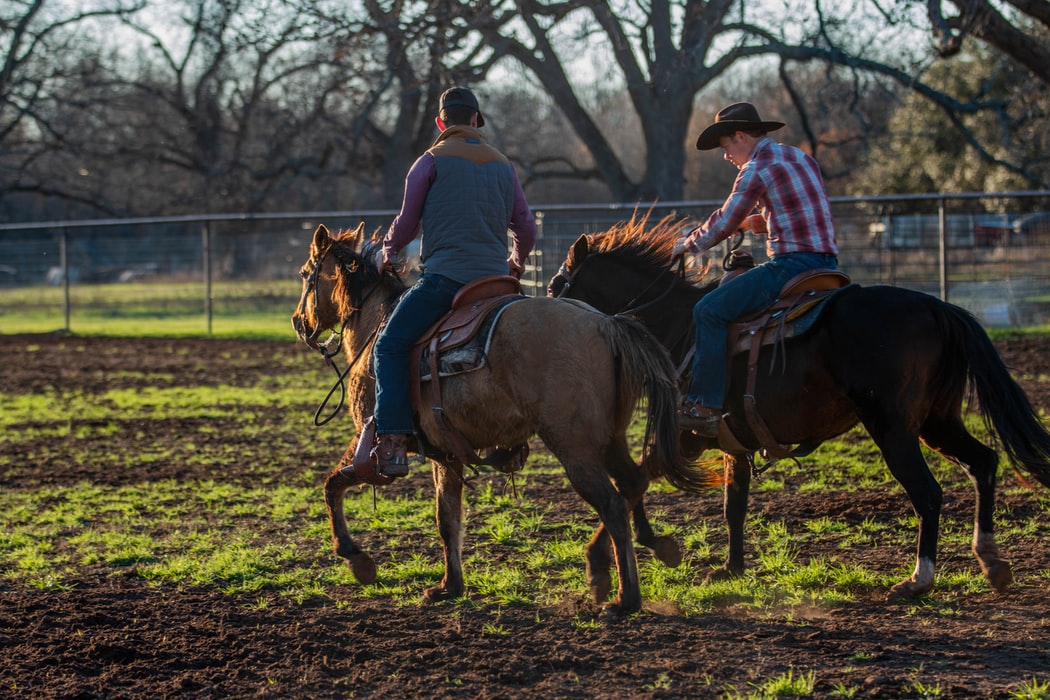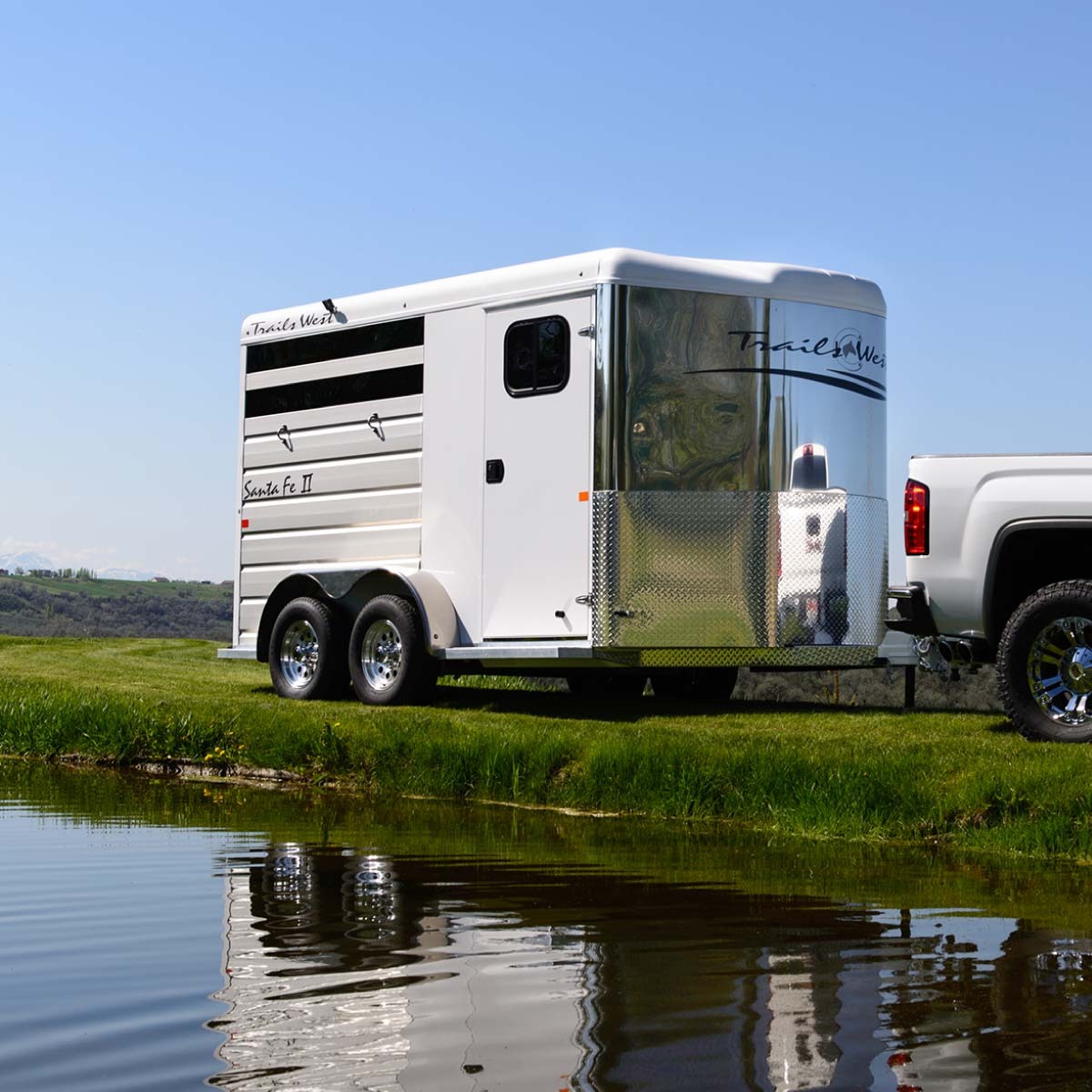All About Strangles — The Healthy Hauling Series Part 2

Strangles. The very name of this foul bacterial infection is enough to strike fear into equestrians everywhere. It’s nasty, it’s painful, and it’s incredibly infectious. Strangles can spread through your barn or pasture like wildfire. And sometimes it’s fatal.
Welcome to the second article in our ongoing blog series dedicated to healthy hauling. Here, we’re going to talk about Streptococcus Equi, subspecies equi (S. equi). — better known as strangles. We’ll discuss the disease and focus on ways to prevent contracting it at a competition. Finally, we’ll explain how to disinfect your horse trailer after a diagnosis.
What is Strangles?
As a horse owner, you may have faced strangles already — or at least heard of it. Think of strangles as strep throat for horses.
We realize the description of this disease is graphic and gross, but you need to recognize strangles when you see it. So yes, we’re going there.
- Strangles is a very contagious bacterial infection that causes massive pus-filled abscesses in your horse’s neck and face.
- Strangles is transmitted by inhalation or direct contact with contaminated surfaces — like another horse’s muzzle, a halter, a bit, or a water bucket.
- S. equi bacteria colonize the horse’s tonsils and pharynx within hours and infect the lymph nodes under and behind the jaw.
- Days later, these painful, pus-filled abscesses can grow as large as a grapefruit.
- Breathing, swallowing, eating, and drinking is all affected.
- Foul pus will leak out of a horse’s nostrils, eyes, muzzle and may leak into their digestive system, causing diarrhea.
- Occasionally, the bacteria will reach other organs and cause abscesses in the liver, spleen, etc. Vets call this “Bastard Strangles.”
- Most vets will lance the visible abscesses to drain them, and prescribe a round of powerful antibiotics, and perhaps “bute” for pain.
- It can be very challenging to keep strangles from infecting other horses.
Most horses develop a fever but are typically not contagious during the first 48-72 hours. It’s when the abscesses begin to rupture that they are most infectious and present the most significant danger to the rest of the barn.
Avoid Strangles at the Horse Show / Rodeo
No one brings a sick horse to a competition on purpose. But still, it’s commonplace to pick up strangles. So:
- Vaccinate your horse for strangles before you hit the road, and annually after that.
- Don’t let your horse drink out of a big “community” trough at the rodeo grounds.
- Don’t share your buckets with anyone.
- Bring water from home, if possible.
- When using hoses and spigots, don’t rest the hose inside the bucket. That hose will be resting in hundreds of buckets by the end of the day. It can be contaminated.
- Use only your halters, lead lines, bridles, bits, fly masks, clippers, and mane tamers. Don’t share! Even among a trailer full of horses that came to the event together.
Finally, keep your horse’s nose to himself as much as possible. While it might be cute to see your sweet gelding nosing up to a new friend, it’s dangerous. Remember, competition is supposed to be fun! Don’t get cranky with your horse if he wants to socialize. You’ll ruin the experience for both of you. Just move him a few feet away from strangers.
The Aftermath — Disinfecting Your Horse Trailer After Hauling a Strangles Case
Whether you accidentally picked up a case of strangles at the sale or had to haul your infectious horse to the vet, your horse trailer must be thoroughly disinfected if you’ve hauled a horse with strangles. The California Department of Food and Agriculture (CDFA) stresses this should be done within 24 hours of hauling an infectious horse.
You’ll want to wear Personal Protective Equipment (PPE) and use a 1:10 solution of chlorine bleach and water. Use a spray attachment to your hose, and tackle it with elbow grease and a stiff brush. Every inch of that horse trailer or livestock trailer must be treated with solution, scrubbed, and rinsed.
Afterward, leave your trailer wide open, in the sun, so it dries quickly. UV rays from the sun are also anti-microbial!
Finally, be sure to quarantine your strangles case FAR away from the other horses. It’s a severe disease.
We hope you’ve enjoyed our discussion of healthful hauling and strangles. Did you ever have a bizarre strangles case come through your barn? We’d love to hear about it in the comments below.
And contact us to learn more about any of our horse trailers, livestock trailers, or horse trailers with living quarters today!
Related Reading & Resources:
Vetfolio.com: Streptococcus Equi Subspecies Equi Infection (Strangles) in Horses






